When we hear the word “burnout” we often think of work, relationships, or just our life responsibilities in general.
Often times to alleviate burnout we turn to our hobbies, such as Dungeons and Dragons. But what happens when we suffer burnout from our favorite hobbies?
Many hobbies eat up a lot of passion and being a Game Master can rank right up there at the top of the list when it comes to passion.
Game Masters usually love the game so much that they’re willing to go above and beyond what the average player is responsible for. The drive and passion to run your own game is sure to wax and wane from time to time or even turn into full-blown burnout.
With this responsibility, GMs almost always invest more time and energy into a campaign than many players can empathize with.
For example, a GM might be responsible for world-building, codifying house rules, preparing for each individual session, memorizing rules, providing the proper atmosphere, coordinating everyone’s schedule, etc.
To put it bluntly, it’s not uncommon for a GM to start to feel like they do all the work. This can then lead to burnout, frustration, and even resentment.
In this article, we want to try and avoid those negative feelings from building up and leading to burnout as well as offer some advice to those already knee-deep in burnout.
We also want you to know it’s not uncommon and we’re here to help. YOU ARE NOT ALONE GM PERSON!
So let’s address the elephant in the room…
Today we’re talking about how to Avoid and Deal With GM Burnout!
Why Are You Feeling GM Burnout?
It’s best to start at the beginning.
Obviously, the first step in the whole process is asking yourself why are you burnt out.
Perhaps you’re such a world-building perfectionist that you spend hours coming up with details for the door knobs in a tavern the PCs will likely never enter.
Before you know it, you’ve married yourself to a crushing workload that’s potentially all for naught (as you’ll soon find out in the tips below.)
Look… Not everyone can be J.R.R. Tolkien. Heck, if he were still alive, maybe he’d even learn a lot from reading our tips as well, at least in our humble opinion.
Sometimes it may have nothing to do with the game at all. Crazy work schedules, illnesses, family responsibilities, and other real-world issues can all certainly add to the DM burnout factor.
TTRPGs are about having fun, and if life isn’t fun or life is super busy it’s obviously going to start spiraling into your hobby enjoyment as well.
That’s why it’s so important to really look closely at what is contributing to these negative feelings. Once you know why you are so burnt out it becomes MUCH easier to alleviate the issues.
So let the Game Master Therapy begin!
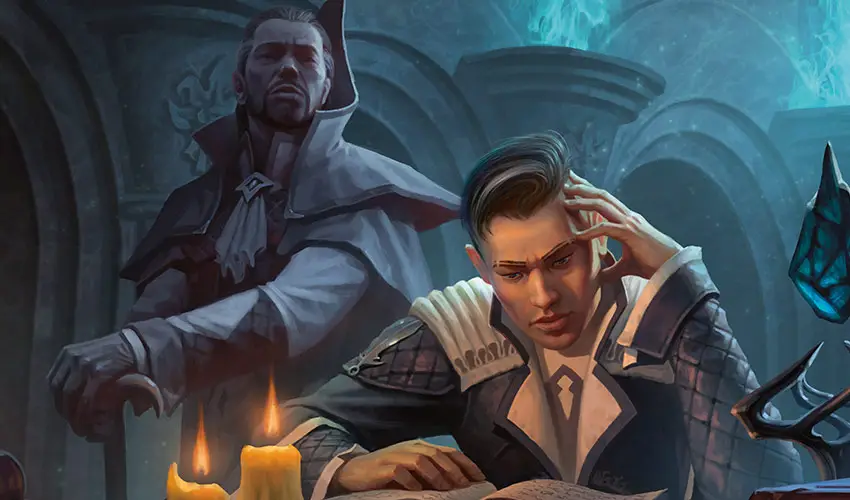
Avoid Burnout By Not Over-Preparing
This right here is my arch-nemesis, my Achilles Heel, and my much-feared enemy!
Over-preparing for a campaign in general or for every session takes its toll. It’s not a question of “if,” but it can instead become a question of “when” if left unchecked.
Keep in mind that this is true of most creative endeavors and creative personalities in general. If you aren’t careful, you’re going to burn out unless you’re some sort of superhero.
This aspect of the game is a very common factor in many cases of DM burnout. But ironically (and thankfully), it’s one of the easiest ones to avoid.
You’ll also find the real reason many of us over-prepare is a desire for control.
As difficult as it might seem at first, you need to learn when to let go of the reigns and how to focus on the parts that really matter the most.
Be Efficient With Your Prep Time
The first obstacle to overcome is to not waste time when preparing for your next session. You want to be efficient with your prep time and focus on what matters most.
The general rule of thumb is to only prepare for what may occur in the next session. Know the rules you need to know, and pay attention to the NPCs, spells, traps, etc. that may come into play in the next session.
If you are spending more than 30-45 minutes on your pre-game prep you are doing it wrong. Maybe an hour if it’s a really big moment in the campaign.
Just be careful to make sure you’re not biting off more than you can chew.
Really think about what your players need you to know for the next game session and ignore the rest until it is relevant. One session at a time, people!
DMs also want to keep all relevant information needed handy and organized, whether it be bookmarking in rule books or post-it notes on the DM screen.
Making sure your area and your mind are clutter free while having easy access to relevant info makes a world of difference!
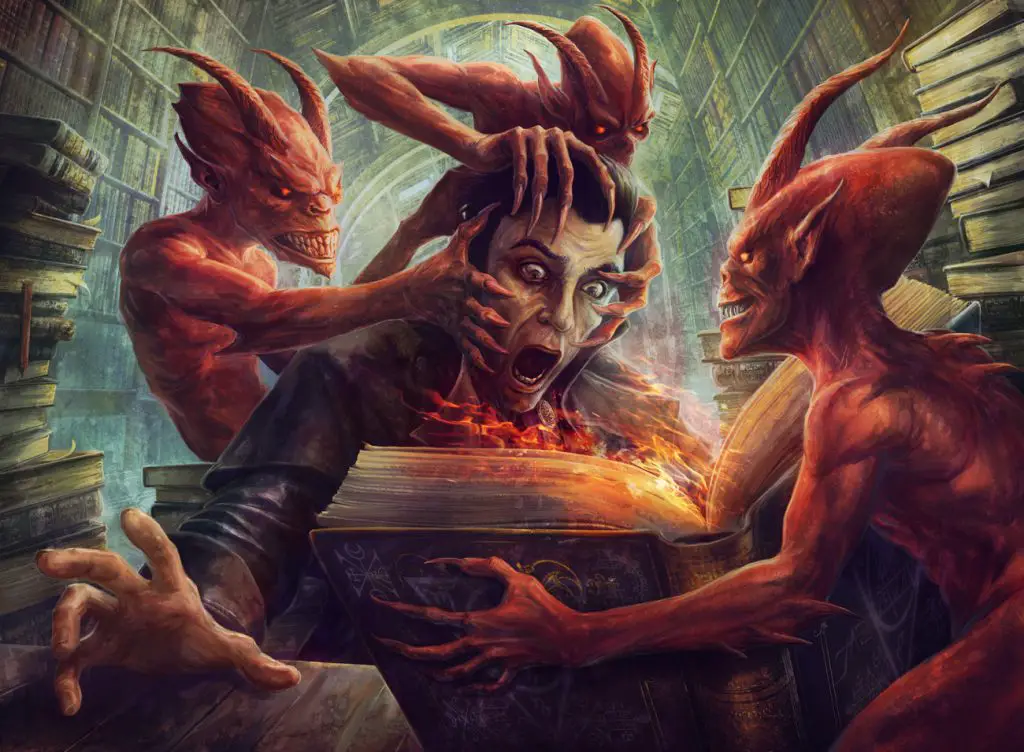
Don’t Invest Too Much Time With Game Design
The more time you spend planning your game, the more you want your players to enjoy what you’ve created.
But this can also pave the way to a major GM pitfall…
Take a moment and answer to yourself honestly: How inclined are you to let the players discover a creative method to avoid a stunning encounter scene if you spent three hours designing it?
While it may be enticing to you to spend 3 hours on the next big bad guy and the super complex room he resides in, it’s not as crucial to the game as you think.
Also, let’s be honest with ourselves, it’s rarely fun and a bit obsessive. (I say that as someone who is VERY guilty of this myself if I don’t make the conscious effort to avoid it!)
It’s also extremely frustrating if the whole encounter is over in 2 rounds as the players shred your encounter. Or worse still they avoid the encounter altogether.
Note: we’re not saying to NOT design fun and detailed encounters.
just be smart about it and honest with yourself.
Can you design a new supervillain by reskinning and tweaking something that already exists? Can you spend 30 minutes designing the encounter rather than 3 hours without your players enjoying it less?
The answer is almost always YES.
Investing too much time in some areas will also lead to GMs becoming enamored with certain encounters or events.
At this point, the game becomes more about what the DM wants vs. what is best for the players and the game itself. This is why we mentioned control earlier.
Have fun setting the stage for players to act on and back off. Lessen your workload, free up your time, and watch the magic of creative group storytelling take over.
Not only will you avoid or alleviate the GM blues, but your game will level up as a result!
Which brings us nicely to the next point…
Recommended: 9 Personal Touches for GMs to Bring Your Game to Life
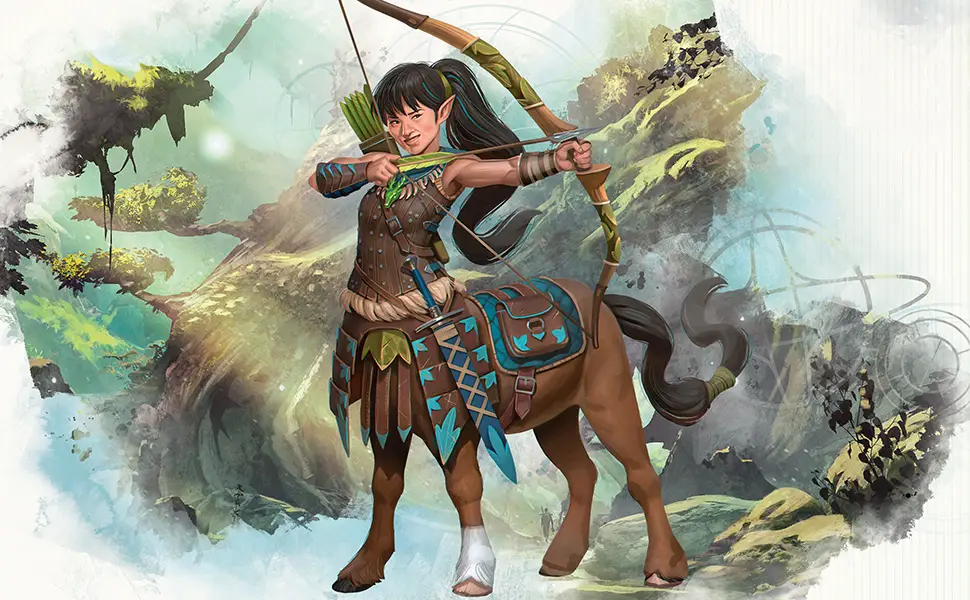
World Building – Build a Stage
As Game Masters, we frequently tend to believe that epic tales happen when typing up our game notes or creating a map. Believe it or not, this is another GM pitfall to be wary of!
Always remember: the genuine story is conveyed when the game is being played at the table itself.
How much should we plan beforehand for a plot that will take place during our game? How can you prepare for an unexpected storyline to emerge?
Our games’ stories unfold at the game table, not before we meet to play.
The more you attempt to flesh out the tale ahead of time, the more likely it will seem planned, rehearsed, and potentially uninteresting. You don’t want to railroad your players in a game that’s all about individual choices!
Outline the plot and only detail what is essential for the actual game itself.
GMing and world-building are about setting the stage. You’re tying in the backgrounds and wants of the player characters, creating the personalities of the NPCs, and creating the setting in which the entire group tells their narrative at the game table.
This isn’t meant to be done on your laptop a week beforehand!
Allow yourself to let go, be more efficient with your time, and don’t try and control the game through world-building and session prep.
You Might Like: Immersive Theatre Techniques for GMs
Acquire Your Secret Weapon
Since we’ve focused so heavily on the impact of prep time and worldbuilding on managing GM Burnout, I have to mention my secret weapon.
In fact, if there is one book that absolutely belongs on ANY Game Master’s shelf, it’s this one.
Mike Shea has created an absolute gem that takes the stress out of GM prep with a focus on working smarter and not harder.
By focusing on the core parts of what makes your game fun and streamlining your prep time, you’re able to focus on what matters most: enjoying your game!
As we already covered, it’s very easy to get stuck in all of the minutiae and fine details that, at the end of the day, don’t really add to the overall experience.
By learning to become a “Lazy Dungeon Master”, you’re given a framework that helps you:
- Create games that are MORE fun and engaging
- Make better use of your prep time
- Avoid and overcome GM Burnout
- Better “roll with the punches” as your players engage with the world
Few resources have had this much effect on my group’s games, and it’s largely responsible for helping us stay together and have fun as a group for as long as we have.
Take a Break from World Building
Running a homebrew campaign often requires extra attention and passion in the form of world-building.
Worldbuilding is a lot of fun and a very creative endeavor that translates into a passion. However, that can lead to, you guessed it, GM Burnout.
As mentioned above, when world-building, you’re focusing on setting the stage.
Don’t get too married to creating every little detail. Additionally, don’t waste your creative energy or passion on aspects that kill that energy and passion.
Also, how much do your players really care about how deep you delve into your worldbuilding?
The world is a big place, develop each area accordingly.
One area might need a simple paragraph write-up. Another might need a full page or even several pages of notes. Meanwhile, some areas you should leave completely undeveloped until they become relevant.
Remember: the only areas you need to focus on to begin your game are the areas the PCs will be frequenting.
Another reason to leave some areas underdeveloped is to create opportunities for the player characters to also take part in building your shared world.
Letting the players develop the world as well ultimately leads to more enjoyment and investment on their part.
So be patient and balance your workload as you build your campaign world!
You Might Like: Overcoming Impostor Syndrome for Game Masters
Enjoy a Wide Range of Media
Game Masters shouldn’t always have their heads in WotC-specific sourcebooks, or even RPG sourcebooks at all. A GM’s job is to set the stage, inspire the PCs to act on this stage, and create exciting plots.
Remember the movie “The Shining”?
“All work and no play makes Jack a dull boy”. We all saw what happened to Jack Torrance while he tried to develop the ultimate D&D campaign!
Ok, but jokes aside…
The great thing about GMing and living in the modern digital age is the access we have to books, cinema, TV shows, music, video games, and art.
All of this can and will inspire ideas for your campaign.
GMs don’t even have to watch or read genre-specific media. In fact, some of the best ideas come from taking ideas in one genre and reinventing them in another!
For example, you could watch “Alien” and draw inspiration for a Slaad campaign with your D&D group! After all, chest-busters aren’t genre specific!
Read some Stephen King if running horror games is your thing.
Perhaps “The Stand” inspires a whole campaign! After all, plagues and the forces of good and evil are perfect for D&D campaigns. Or maybe you are all about the “Dark Tower” series and would like to apply it to aspects of your game.
Why not?!
Listen to podcasts on topics that you enjoy and that can be applied to your campaign.
Learn how professionals write screenplays (which this other book is EXCELLENT for!) and listen to movie reviews to see where they went right and where they went wrong. Use that feedback to grow as an RPG storyteller!
Different types of media and genres are sure to inspire DMs to have ideas for NPCs, spells, encounters, plotlines, and whole campaigns. It serves to keep things fresh.
Watching movies, reading books, and listening to music alleviate burnout and inspire creativity without the workload or responsibility.
You’ll find that inspiration is all around you!
Don’t be afraid to mix it up or tell your spouse you and the kids need time to watch all nine Star Wars movies to prepare for your next campaign!
That was a joke of course… maybe…
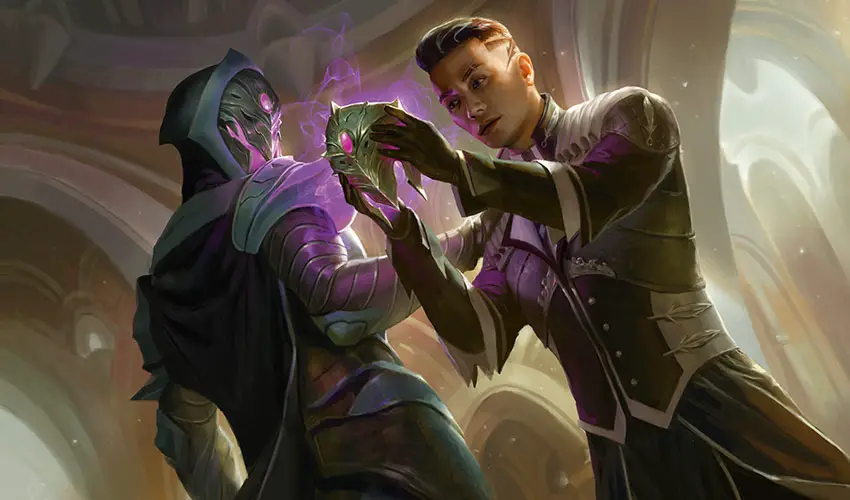
Play With Other Groups
Sometimes stepping down from GMing for a bit can be just what the RPG doctor ordered.
I mean, the main focus of this article is GM BURNOUT after all. Why not just be a player for a bit?
In fact, why not go for broke and play with other groups and see how they play?
Not only will that give you an opportunity to be a player, but it also will introduce you to new concepts, themes, and styles of play that you can incorporate into your own game!
Trying new things and meeting new people in our real lives alleviates burnout. The same can be said for our RPG life, as it were.
Maybe you want to try some of the classes and subclasses that you don’t have a chance to experience as a GM. Perhaps you simply want to fill out some character sheets and do some role-playing from the other side of the GM screen. It’s all good!
Heck, maybe you just want to experience how other GMs run their sessions or what players experience so you can better empathize with them in your games.
Playing with new groups might also give you ideas on how to handle issues in your games, and you might even make new friends. Even as a worst-case scenario, you might come away with a better appreciation for your own “regular” group.
We live in extraordinary times.
Tabletop gaming is at an all-time high, and we have access to digital tools to help us find new groups to play with without leaving the house.
Take it from someone who’s been playing since before the Internet was a thing: geography and distance aren’t really the problems they were back in the old-school days.
Recommended: How to Find a D&D Group
Ask Your Players to Share More of the Responsibility
Don’t be afraid to lean on your players from time to time.
There is no shame in asking for help to better benefit the group. Keep in mind that players don’t enjoy a burnt-out GM who oftentimes is also a friend that they care about.
Your players WANT to help.
Players can help DMs by being responsible for the technical knowledge related to their actions and characters’ abilities. Perhaps it’s game session help such as knowing the rules, knowing their character’s abilities, etc.
After all, relying on the Game Master to know everything (especially every new sourcebook) is only going to make the game less fun for the GM and, by extension, the rest of the group.
Another way players can help us is to help the GM with the “logistics”.
Maybe one of the players or the whole group is responsible for scheduling the next session. Perhaps you take turns hosting the campaign, or maybe players take turns making chocolate chip cookies for the GM to enjoy.
(I joke… but also… I won’t say no to cookies…)
Anyways…
Share the load where you can. This leads to a much more enjoyable experience for everyone!
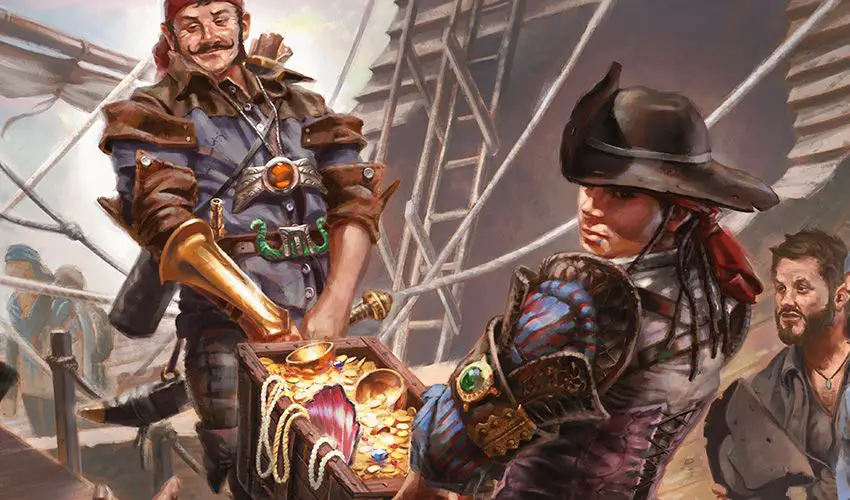
Try Other Games
Playing other games whether they be different RPGs or even board games is also a great way to alleviate that burnt-out feeling that your regular game is giving you.
Your group might normally play D&D 5e, but perhaps a trip to a different game, system, or genre can keep things feeling fresh!
I’d suggest rules-lite games such as Cypher System by Monte Cook games or any of the offerings from Free League Games. (Personally, I’ve gotten addicted to the Dark Souls-esque brutality of MÖRK BORG.)
These recommendations are fairly rules-lite and open up almost any genre without all the work that rules-heavy games offer.
Of course, this is just my opinion, and as we know opinions are subjective. I just figure rules bloat isn’t going to do much to help alleviate GM Burnout.
But the sky is really the limit here.
There are more RPGs out there than ever before across multiple genres. And the list of options gets bigger and bigger every single week!
Almost any genre is going to have multiple options to choose from. Even better, these can also inspire your D&D game with new ideas to work into your regular campaign!
Related: Reviewing Mörk Borg – Rules-Lite Doom & Gloom!
Run Some One-Shot Games or Campaigns
Often times running a one-shot is just what the doctor ordered. This is especially true when it comes to campaign burnout.
You might be surprised at how well it works!
Oftentimes the GM and even the players aren’t burnout on D&D itself, but on the campaign. In times like this, everyone needs a break for a bit to get back into the spirit.
For example, your group might be getting worn down by the endless bleakness and despair of Barovia in Curse of Strahd. Running a one-shot or other short adventure in a more vibrant setting can do a lot to lift everyone’s spirits!
Find a short pre-made adventure and have everyone roll up new characters. Sometimes, players and GMs just want or need a break from their existing characters and NPCs.
While there are several great options to choose from, you can read the review of our favorite collection here!
Keep in mind that one-shots also do not need to be “one-and-done” sessions as the name implies. Maybe you pick something that takes three, five, or even eight sessions to play.
That’s perfectly fine!
The point is that sometimes everyone (including the players) can get campaign and PC burnout and just needs a break.
So leverage the one-shot aspect of D&D! It’s a change of pace and requires little work on the GM’s part.
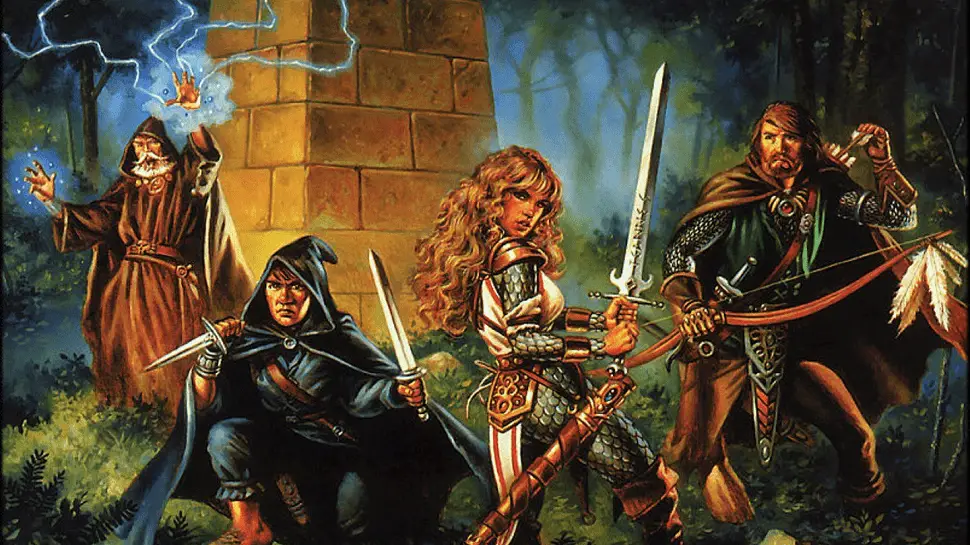
End Campaigns When They Reach Their Peak
This one seems like an obvious one, but sometimes the urge to keep pushing the campaign beyond its pinnacle is hard to avoid.
Allowing a campaign that has already peaked to linger on can lead to boring and subpar gaming. It also leads to frustration and burnout as the GM is constantly trying to recapture the “glory days” of the campaign.
I recently decided to call this “the Tom Brady campaign.” In other words: know when to call it quits.
But this doesn’t have to be sad. In fact, it’s often quite the opposite!
The end of one campaign is a chance for something new and fresh. It’s the start of a brand new campaign that you can all enjoy. You’ll be able to take experiences from your last campaign and supercharge your game even more.
Additionally, you’ll also find that most of the time the burnout that you were feeling can give way to something new and exciting to try. But this time around you’ll know how to do it even better!
The moral of this tip: know when it’s over and end it. The quicker you bring things to a satisfying conclusion, the quicker you can move on.
I never thought I’d be giving GM and relationship advice in the same article, but I guess I just did.
Related: Wrapping Up Your Campaign
Set a Realistic Schedule for Game Night
The hardest part for me as an adult gamer (because, apparently, your 40s is adulthood) is a realistic schedule.
It’s a bitter truth that, as adults, we all lead different lives and have different responsibilities. The middle and high schoolers among us will learn one day that the weekend-long D&D marathon games will eventually come to an end.
Trying to play two nights a week when half the group is married with children might not be realistic or be unfair to those individuals.
Maybe it’s more realistic to instead play once a week or once every two weeks. Discuss this with your players. Are some days of the week better than others? You want to discuss that as well.
Putting too much on your schedule can also lead to rushed and subpar games which most definitely leads to burnout.
If you know your work schedule is about to become chaotic and busy, plan for that ahead of time. Let your group know you have a full plate for a bit. They’ll understand.
Scheduling is all about respecting our responsibilities and our fellow gamers. Realistic scheduling also lessens the workload on the DM who may be starting to suffer from burnout or even be burnt out already.
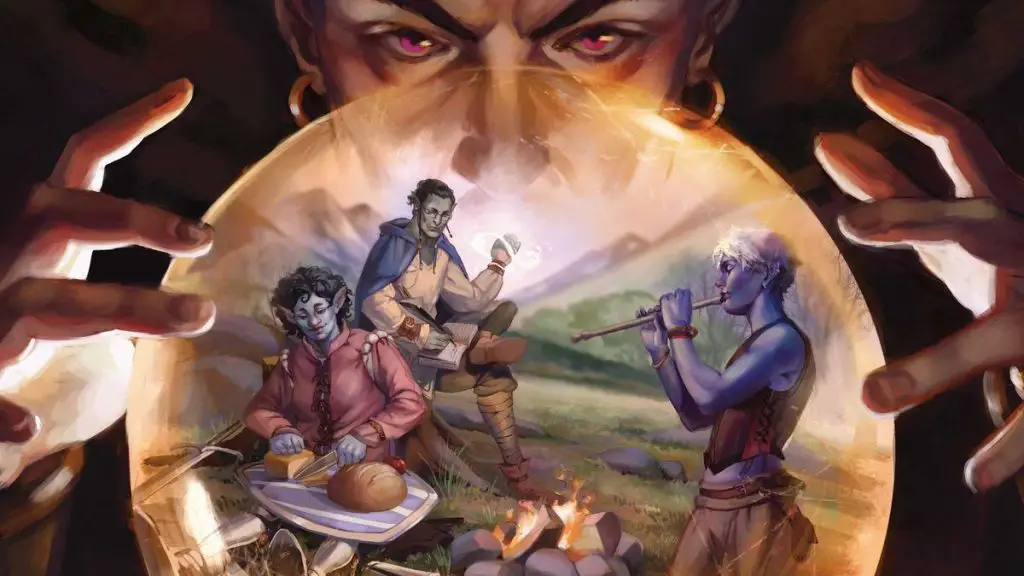
Curate A Really Great Group
Another common aspect of avoiding burnout is playing with a group that you really gel with. This can apply to personality types, what players expect from a campaign and even their play styles.
If half your group prefers low-magic roleplaying and the other half enjoys high-magic and non-stop combat there are going to be issues, and you’ll get burnt out trying to make everyone happy.
If you have combative personality types in your group, that can lead to problems as well. Maybe someone in the group is very outspoken and talks over everyone. Or perhaps it’s the opposite problem and no one takes the lead.
These scenarios can both cause issues and burnout.
When you find a player or a group of players, learn to appreciate them and curate a pool of players that are all going to enjoy playing with one another.
This can often be easier said than done, but again in this day and age it’s easier than ever to find both local players and online players to recruit.
Personally, my main group goes way back. One player and myself go back over 40 years, and 2 more of us go back 30 years.
Along the way, all of us found other players, and 40+ years into my gaming “career” I have almost 15 individuals (many of who can also DM) in my D&D gamer pool. It’s a great feeling, and I consider myself very lucky to have such a group.
This aspect of the game might frustrate and burn out DMs, but be patient and don’t give up. After all, it only takes four players and one DM to turn things around.
You WILL meet your fellow gamers sooner rather than later.
Related: Your Game Won’t Be Like Critical Role (and That’s a Good Thing!)
Stick To What Is Fun
Before starting a campaign ask your players what they expect from the game.
It’s a vital aspect of your Session Zero to cover. Once it’s established, stay mindful of it.
As the campaign progresses, you’ll also get to know what your players enjoy the most and what you enjoy the most. Chances are, if your players enjoy your campaign, you as a Game Master are having fun as well.
Too much combat, too much roleplaying, and not enough balance is going to lead to frustration and burnout. Once you find a happy balance and stick to it, the fun is sure to remain constant at your game table.
Also, don’t force your campaign on the players. Instead, let them lead the way and follow their lead.
Fun means no burnout! Sticking to what is fun for everyone is a great way to avoid GM Burnout in the first place!
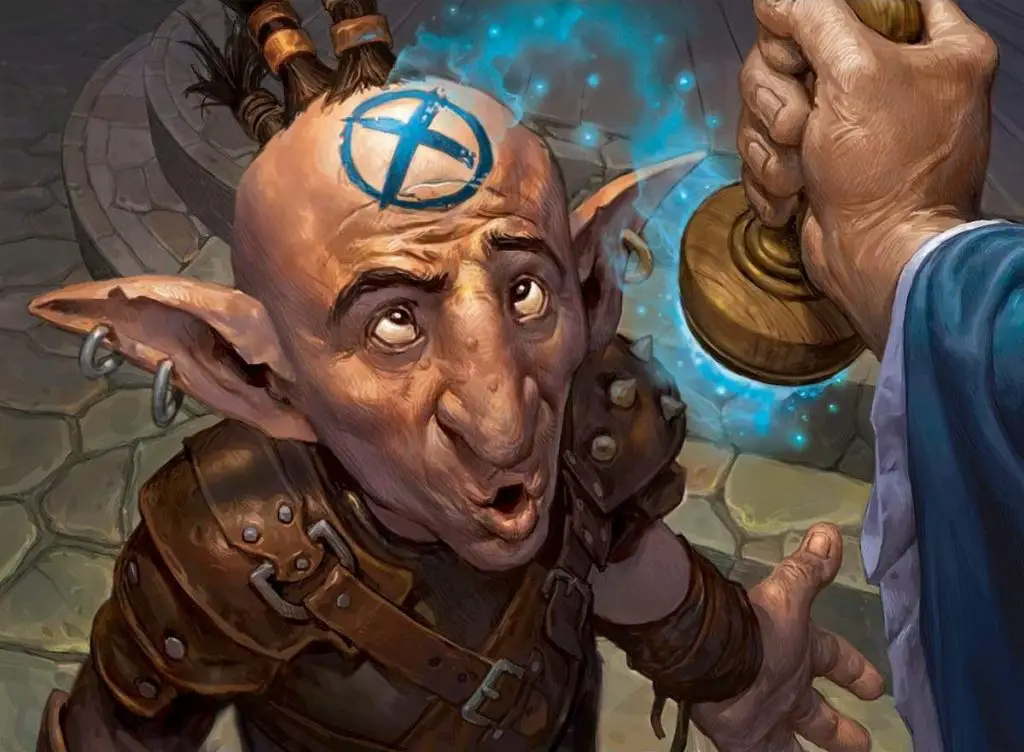
Avoid Problems and Problem Players Early On
Now for the tough love part of this article…
Problems in your game and problem players can lead to dumpster fires. Dumpster fires are bad!
Now to be clear: by problem players, we don’t necessarily mean jerks. Sometimes players might not gel for other reasons and become problems.
Maybe they are always late. Maybe they don’t know the rules after 6 months. Perhaps they are on their phone constantly or regularly talk over other players.
The best way to address many problem players is simply to mention what the problem is and give them a chance to adjust. Oftentimes, folks may not realize there is a problem until you bring it up.
But don’t forget to include yourself as the GM in this equation. Be sure to ask your players what you might be doing wrong and take helpful advice to improve.
When you’re given feedback from your players, don’t take it personally. Remember: it’s a game, and constructive criticism is valuable.
As for those who are outright jerks, kick them to the curb as soon as possible before they destroy your group and game. If you’ve got a player who likes to harass/victimize others at the table or other such “jerk” behavior, give ’em the boot.
I find pre-game or post-game pow-wows work best, if you present a problem, be mindful of it and adjust. As gamers, we owe it to one another to not get personal when addressing issues and to not take them personally.
The better a group gets along, the less drama and the better chance of not burning out.
The moral of this tip is simple: address problems and problem players sooner rather than later. It’s the best way to avoid any burnt-out feelings for not only GMs but also the other players.
Conclusion – Avoiding DM Burnout
GMs getting burnt out is a very real issue. It’s also a very common issue that many of us suffer from at some point or another.
After all, this is a creative hobby that naturally leads to tons of passion and immersement that can potentially lead to inevitable phases of burnout.
While this article could have been triple the size with the number of tips to avoid burnout I encountered while researching it, we need to stop somewhere and allow the readers to take over.
We’d really love to hear some of the tips our readers use to avoid getting burnt out in the comments section below. Also, it doesn’t necessarily have to be for GMs as players can find themselves with burnout as well.
Thanks again for supporting the Tabletop Joab team and be sure to signup for our newsletter so we can “hand deliver” all the latest articles and news right to your inbox!
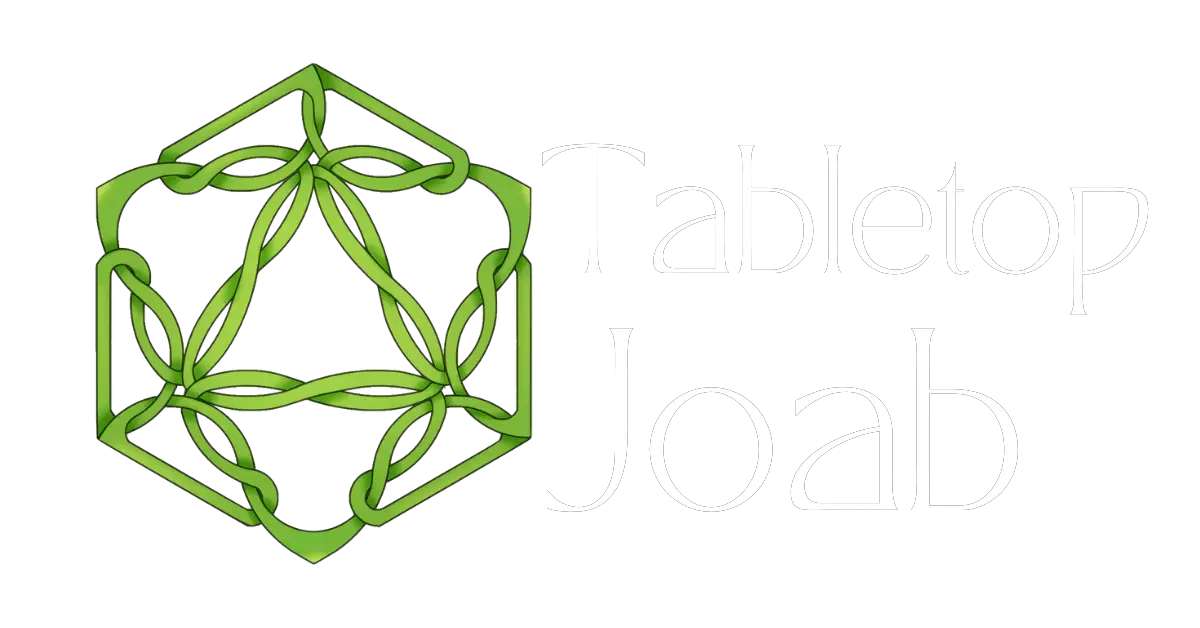
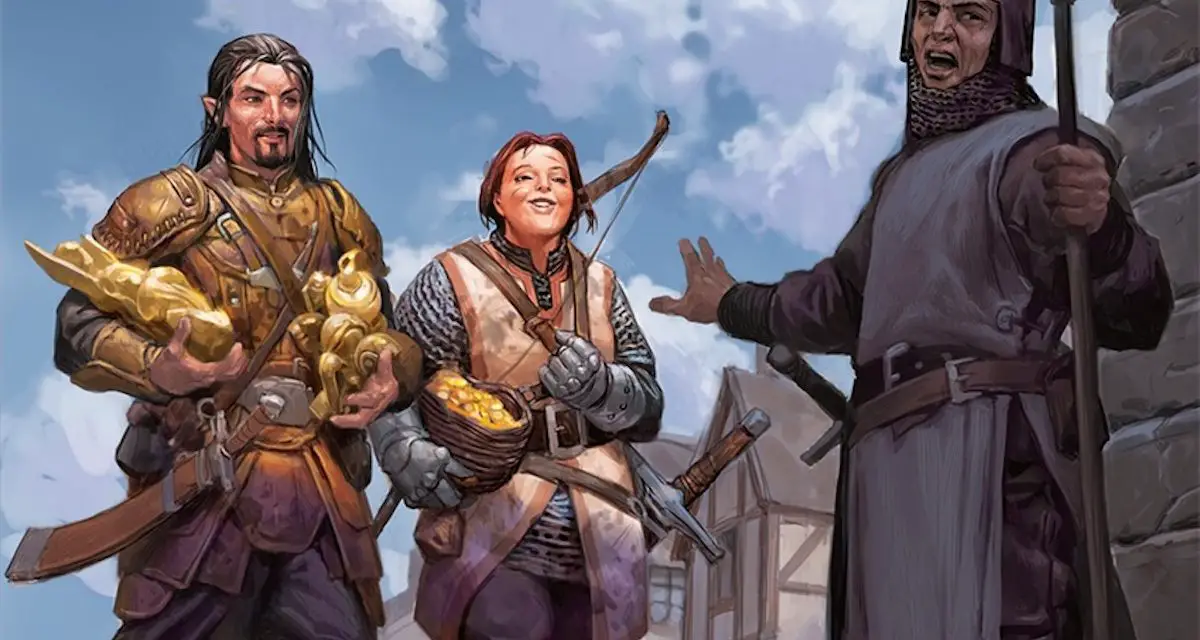
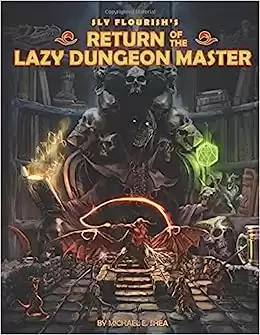
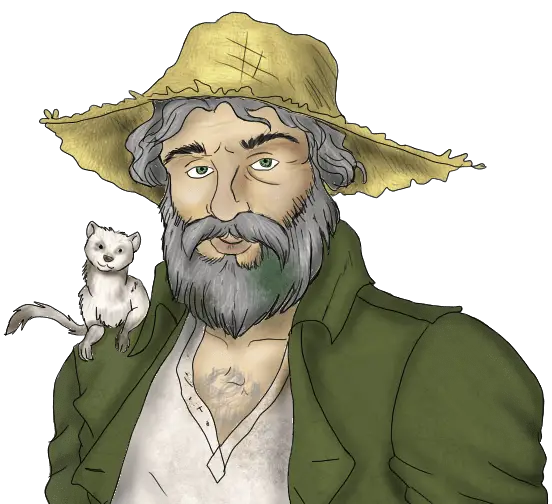
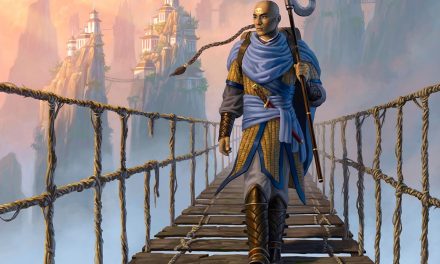
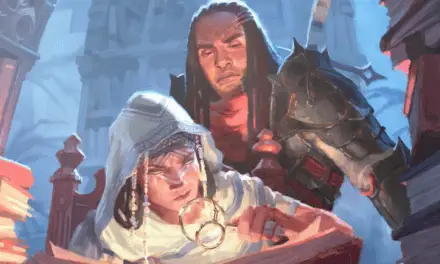
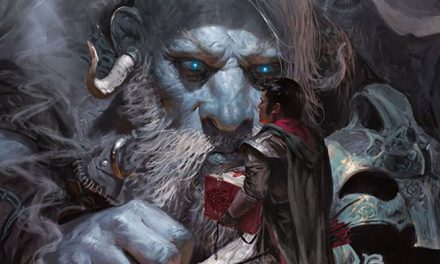
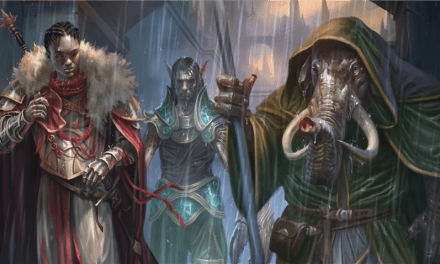


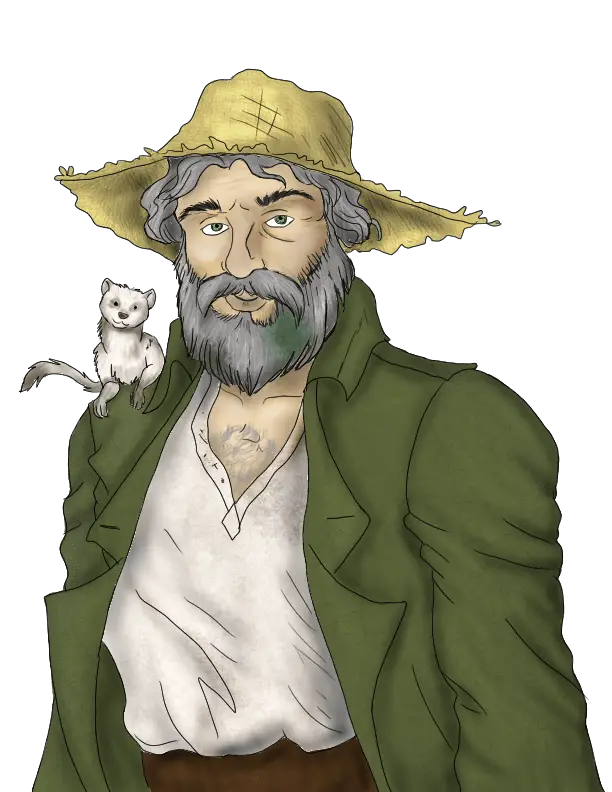

Great article!
Hi Mike!
Glad you enjoyed it! Burnout can get even the best of us, so it’s always good to have a plan for dealing with it!
Thanks, Mike. Sorry for the delayed response, suffering some work burnout…the only cure is more gaming. 🙂